Since its inception, Tzu Chi International School Kuala Lumpur (TCISKL) has been committed to nurturing compassion and a spirit of giving among its students. The donations collected through the annual Bamboo Bank programme have been channelled towards Tzu-Chi Alternative Learning Centres (ALCs) in Sabah, to ensure education opportunities for stateless children. Recently, a group of TCISKL students embarked on a volunteer service trip to East Malaysia, immersing themselves in Tzu Chi’s selfless love and life education.
On June 29, 2024, a group of 27 secondary school students from TCISKL’s Tzu Chi Youth Association (TCYA), accompanied by teachers and Tzu Chi volunteers from the Tzu-Cheng and Yi-Te Association, flew to Sandakan, Sabah, for a five-day visit. Their itinerary included participating in free clinics, distributing supplies, visiting a landfill, and spending time with stateless students at a Tzu-Chi ALC — a series of experiences that profoundly impacted their souls.
“Without legal identity, work, and access to running water and electricity, these stateless villagers live in dire straits, often compounded by illnesses. This medical outreach aims to alleviate their suffering, hoping our love brings warmth and support…” Through the explanations of a local Tzu Chi volunteer, the students gained an understanding of the people they would be serving, before helping to set up the free clinic venue.
This was the TCYA’s first volunteer service since its establishment in April this year, and the anticipation was palpable. The students took on various roles, from managing registration, reception, and temperature checks to distributing masks. When Ng Yun Ning noticed that many Muslim women wearing headscarves could not wear standard masks, she ingeniously attached rubber bands to the ear loops, creating a headband. “Without masks, they would miss the chance for medical care,” she explained.
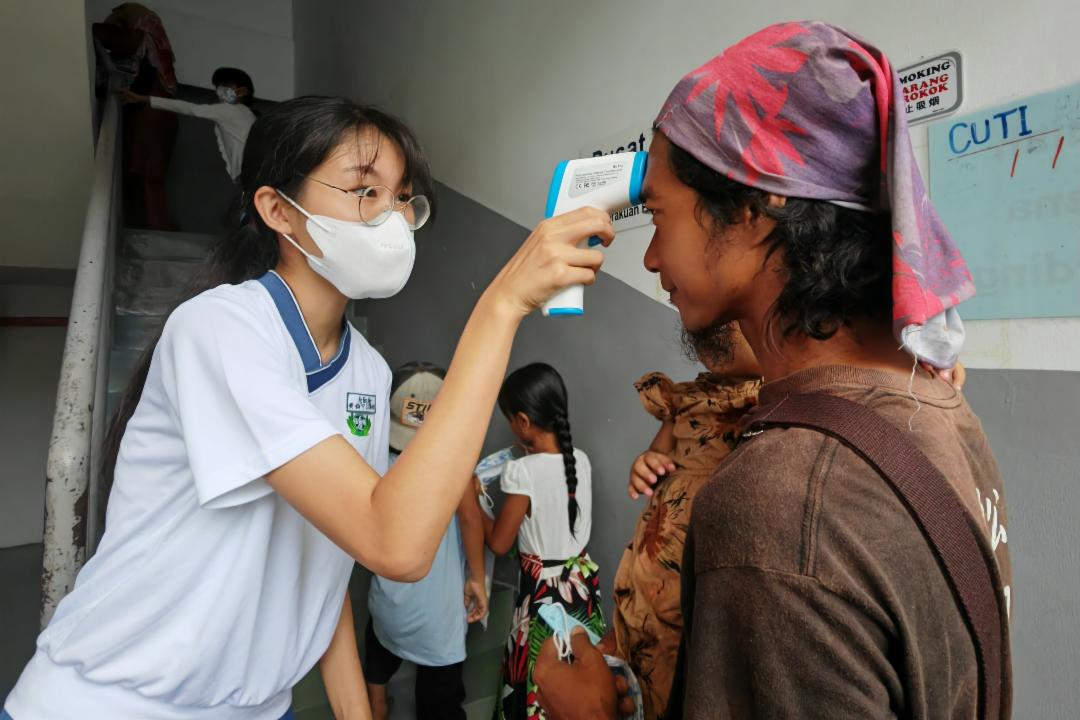
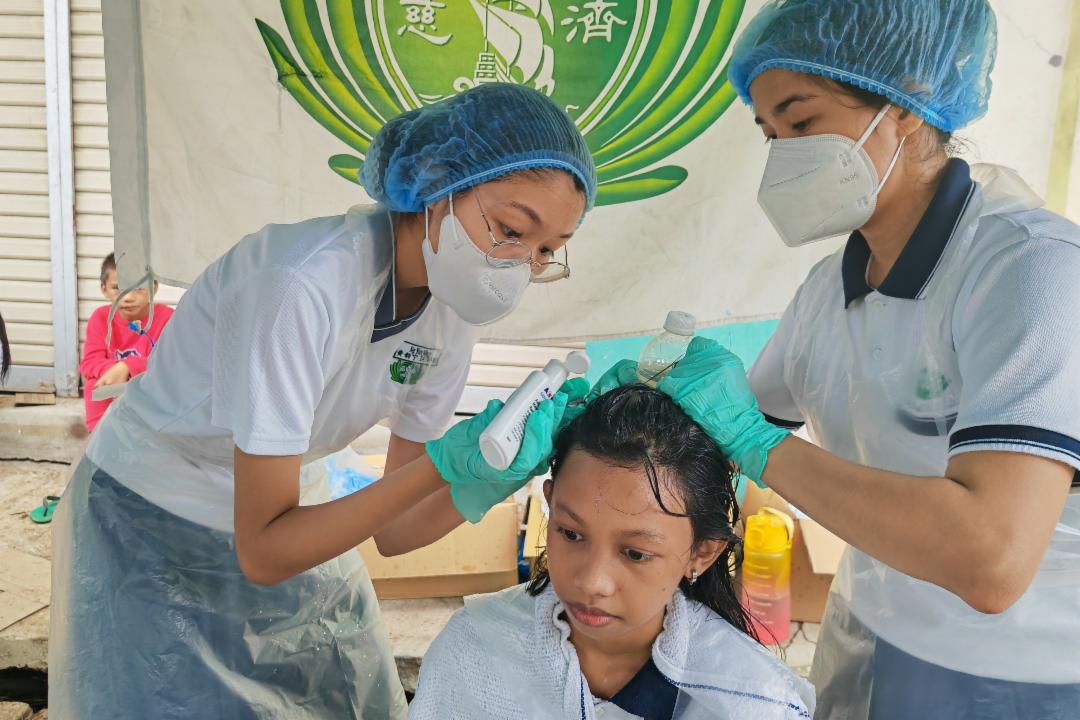
Witnessing a girl in pain and feeling sad after having four teeth extracted, the students offered comfort. “She didn’t cry during the extraction, but tears flowed afterwards. It was sad to see, especially since the free clinic was held at a Tzu-Chi ALC and, and such, was not as well equipped as a dental clinic. Yet, she was incredibly brave,” shared Chan Lok Hey.
Lok Hey was most deeply moved by the visit to the landfill, where they witnessed the scavenging lives of the stateless villagers. “The moment we stepped off the bus, we were hit by a pungent smell. Trudging through the mud, we saw many makeshift homes on the landfill and children riding bicycles through the mire. The most shocking sight was a boy holding a cigarette. According to our teacher, these children have no access to education, and they just mimic the adults without understanding the harm,” she recounted, finding their hardships beyond her imagination.

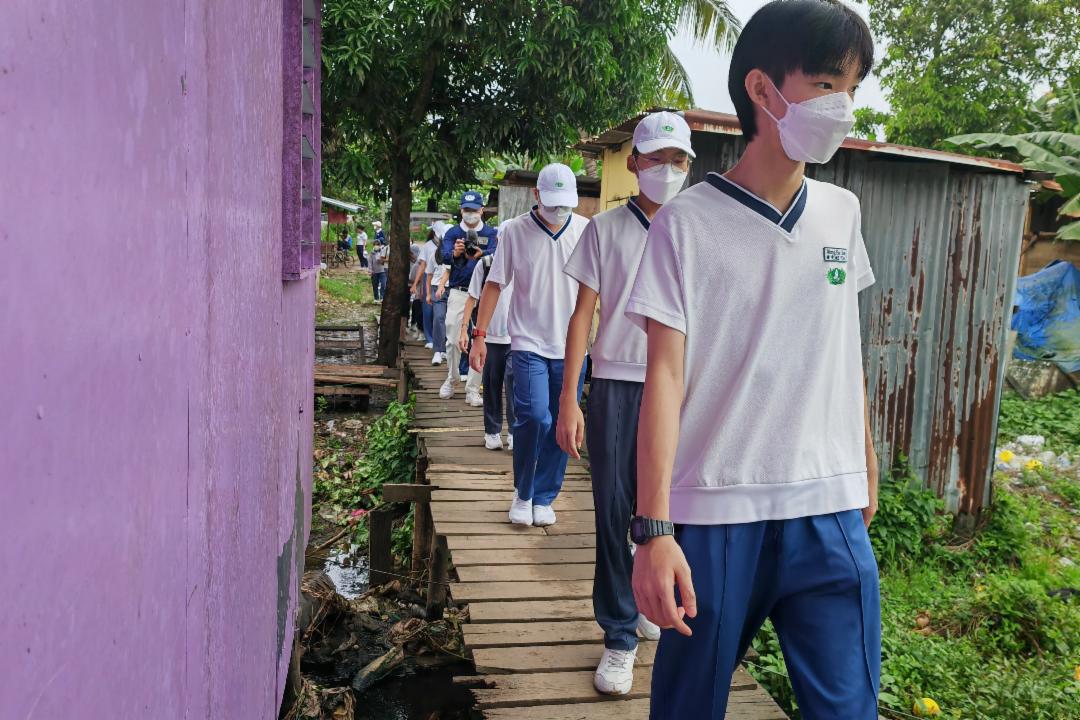
◎ Life beyond the ordinary
To avoid detection by law enforcement, stateless individuals often reside in remote areas, not just in landfills but also in coastal shanties. Lacking water supply, villagers collect rainwater for daily use and buy bottled water for drinking, resulting in significant plastic waste. Inspired by Tzu Chi volunteers, they began recycling practices.
During their visit, the Tzu Chi youths collected plastic bottles from the villagers and then walked ten minutes to deliver them to the Tzu Chi recycling centre. Coincidentally, the recycling truck arrived just as they did, and together, they loaded the recyclables onto the truck.
Despite the sweat, smiles were abundant. Loh Yee Thung admiringly said, “Although the villagers face water challenges, they still embrace Tzu Chi’s principle of ‘cleanliness at the source’, washing the plastic bottles before keeping them for recycling.”
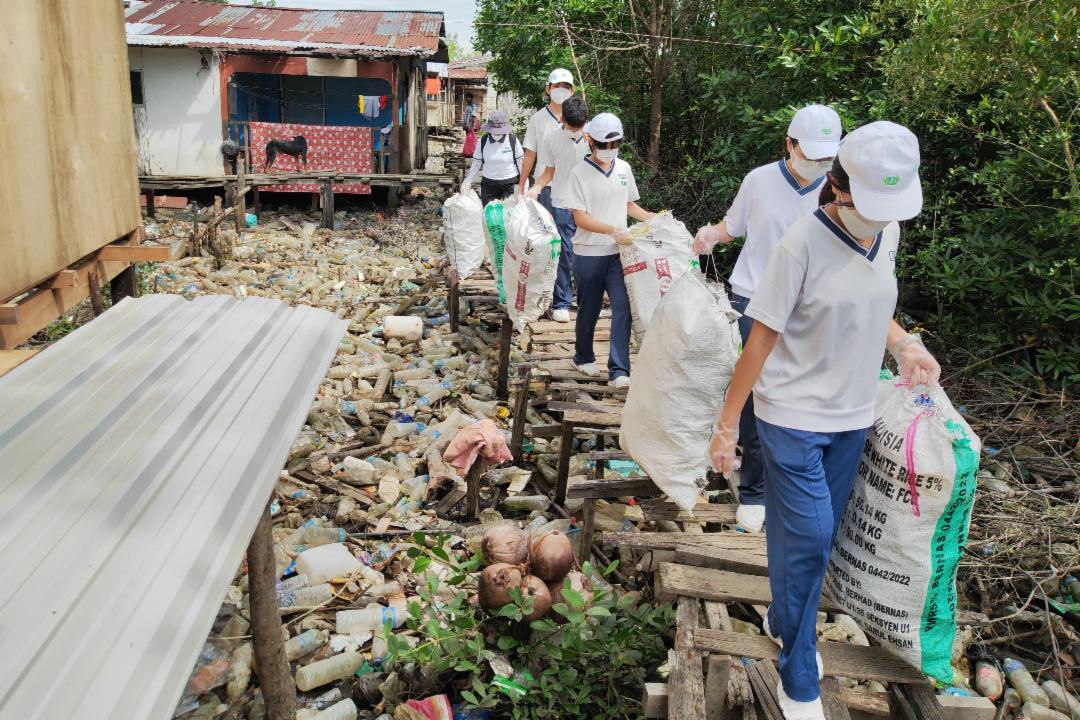
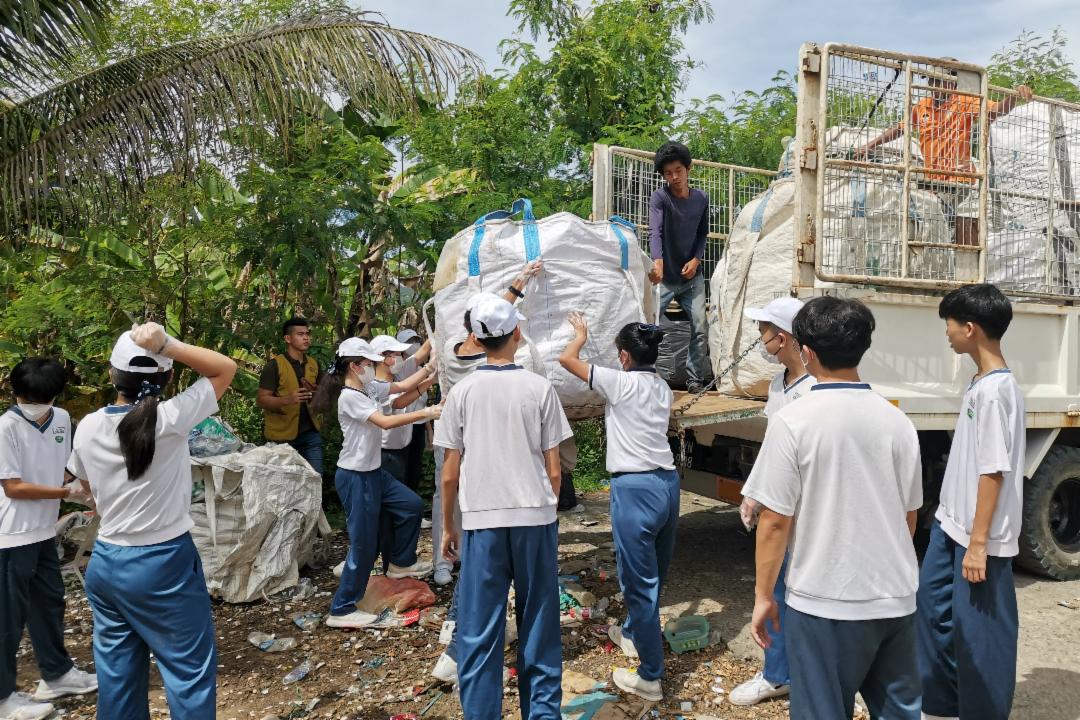
◎ Unimaginable hardships
Every month, Sandakan Tzu Chi volunteers distribute supplies to the care recipients. Guided by the volunteers, the students split into three groups to deliver daily supplies to three families living in stilt houses above the sea and in the mountains.
Carrying supplies across a precarious wooden bridge four metres above the water, the students overcame their fears, focusing on balance and careful steps to reach their destinations. Meanwhile, those trekking up the mountain were shocked by the poor living conditions they encountered. In the dim, cramped homes, they took turns entering to deliver goods and care.
For 16-year-old city boy Ooi Wah Xun, 18 should be an age of vibrant youth, pursuing education and friendships. He felt deep sympathy for the care recipient’s 18-year-old eldest daughter, Misra, who, without citizenship, was confined to the dim hut, caring for her five half-siblings, deprived of a life of her own.
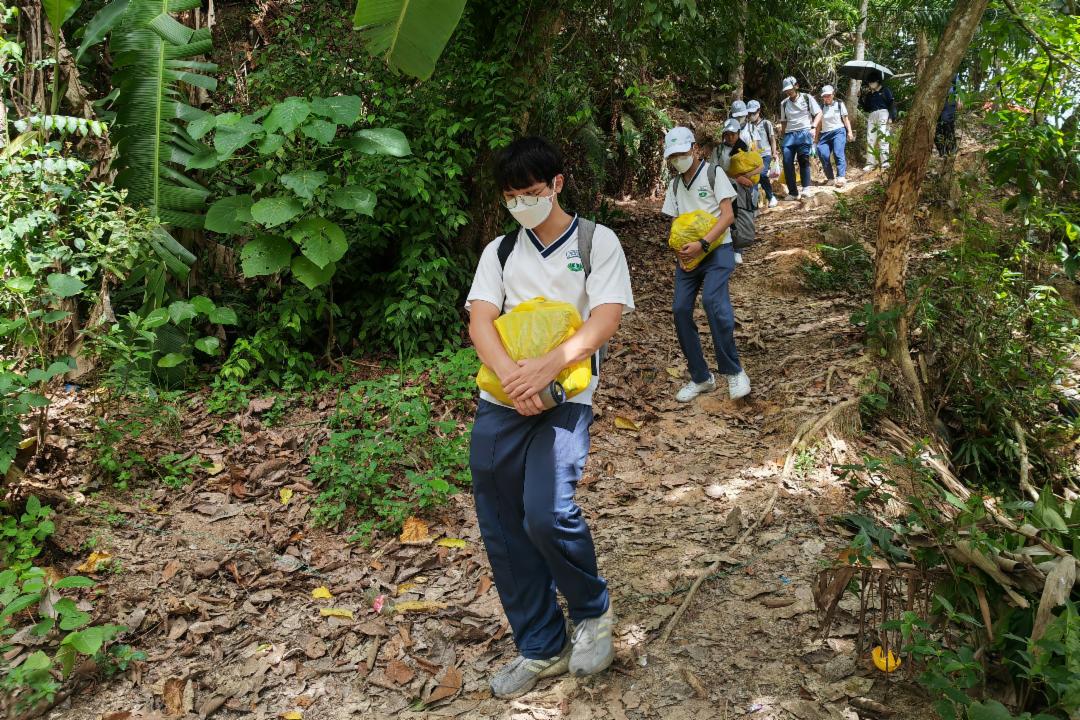

●
Seeds of goodness have taken root in the students’ hearts. It is hoped that they will shape the world around them by spreading ripples of love throughout the campus and beyond.
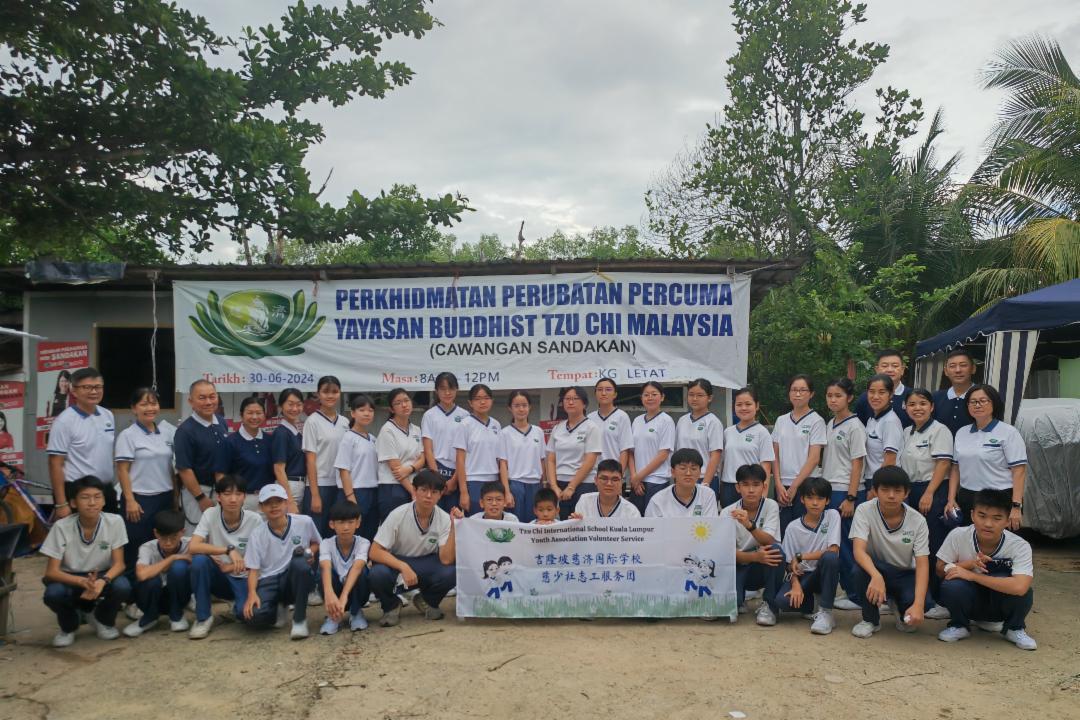


![Tzu Chi youths bowed deeply, expressing gratitude to the care recipient family, before departing. [Photo by Low Get Lee] Tzu Chi youths bowed deeply, expressing gratitude to the care recipient family, before departing. [Photo by Low Get Lee]](/images/Articles/JY/2024/KL20240702_lyl01_054.jpg)

